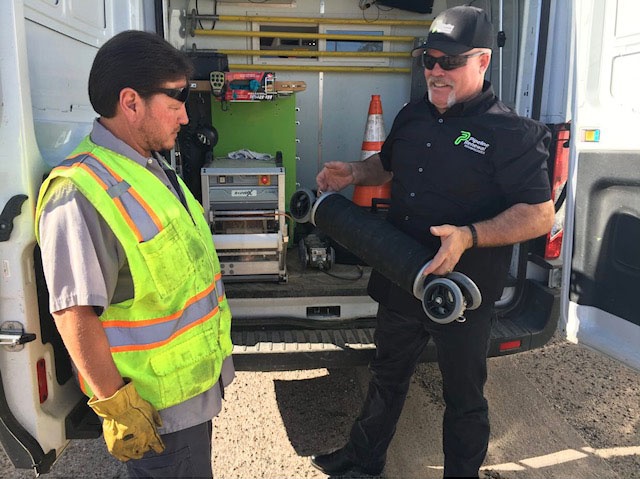 Having the right sewer rehab equipment is integral to performing work. It can also be a large burden—physically and financially—but it doesn’t have to be. Determining whether to rent, lease or buy equipment is a complex decision that deserves careful consideration of many factors, as each option has its own list of advantages and disadvantages. The most important thing to know about renting and leasing is that you borrow, not own, the equipment. Aside from ownership status, other factors include technological, financial and legal considerations. When choosing how to procure your equipment, consider the following questions.
Having the right sewer rehab equipment is integral to performing work. It can also be a large burden—physically and financially—but it doesn’t have to be. Determining whether to rent, lease or buy equipment is a complex decision that deserves careful consideration of many factors, as each option has its own list of advantages and disadvantages. The most important thing to know about renting and leasing is that you borrow, not own, the equipment. Aside from ownership status, other factors include technological, financial and legal considerations. When choosing how to procure your equipment, consider the following questions.
Are you a startup or a new sewer rehabilitation contractor?
If you’re a rookie just getting started with sewer rehabilitation, renting or leasing will help you save costs upfront while still allowing you access to the equipment you need. It also gives you the opportunity to test out different equipment and use the latest models and tech before making a purchase. Renting is the most flexible option, but will have less predictable expenses and make budgeting more difficult. Many vendors have a rent- or lease-to-purchase option that can also be a smart way to invest in equipment while spreading out startup costs.
Do repair costs matter?
Sewer rehabilitation is brutal work that wears out equipment quickly. Managing your cost-of-ownership includes understanding the repairs and service all equipment needs over its lifetime. When renting and leasing, you don’t have to worry about repair costs. You can even avoid downtime as owning companies often supply temporary replacement equipment when something needs servicing. On the other hand, buying equipment means you are responsible for repairing the machinery yourself. Having full control of maintenance and repairs means service can be completed to your standards, but that can be costly. Renting avoids these expenses altogether.
Are you hoping to benefit from tax incentives?
Leasing and buying are often associated with tax benefits. If you’re a small- to medium-sized private for-profit company, Intuit reports that leasing expenses can likely be categorized as a 100% tax-deductible operational expense under the 179 IRS Tax Code. Some buyers may also qualify for tax incentives, while others can leverage a depreciation deduction for the equipment. Renting equipment does not have this advantage.
There are many more considerations that should be taken into account, so take your time when deciding how to invest in equipment. Ask questions so you can be confident it your choice. Pipeline Renewal Technologies has renting, leasing and buying options, so reach out today to find the best fit for your crew:


